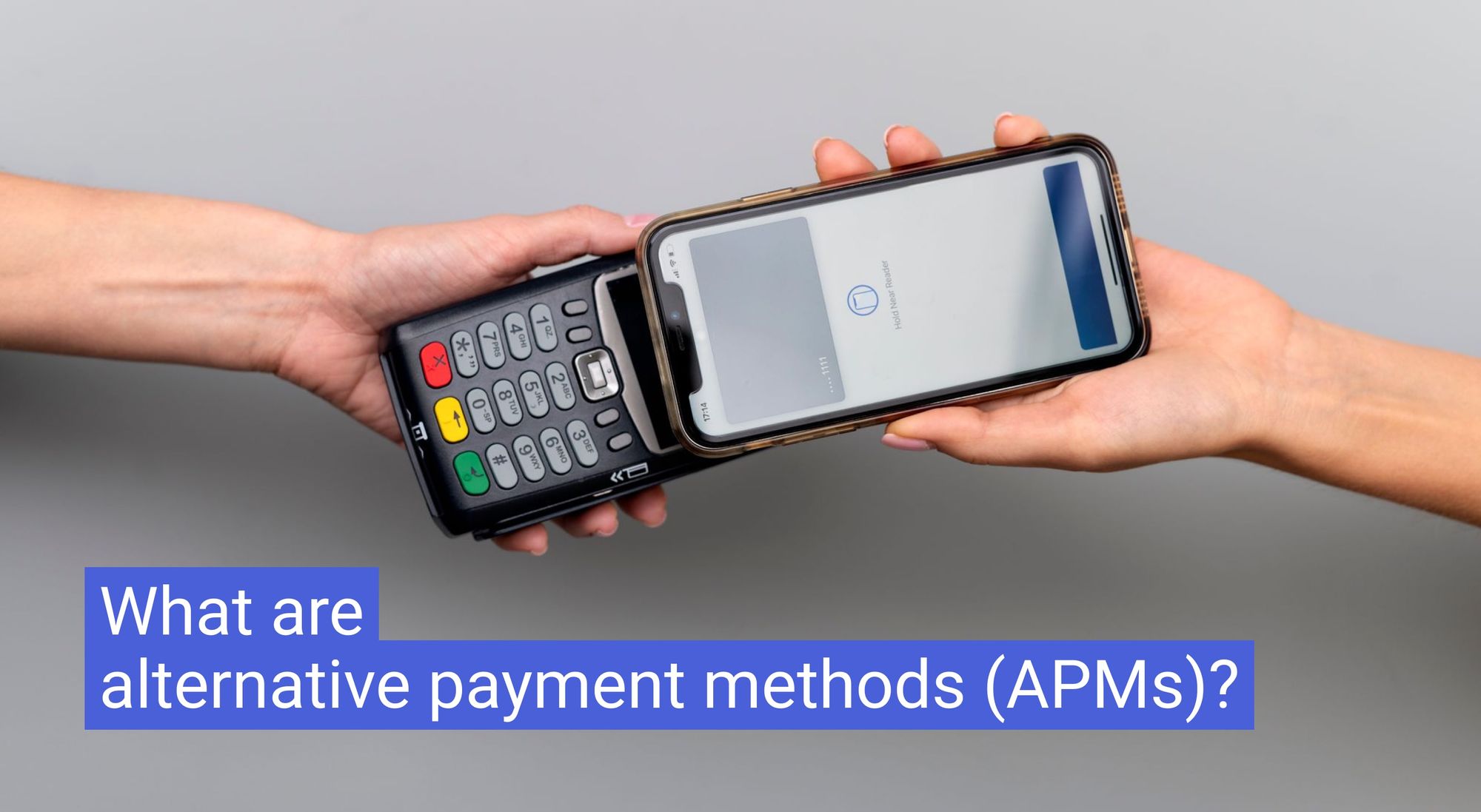What are alternative payment methods (APMs)

In recent years, the way we pay for goods and services has evolved significantly. Traditional payment methods such as cash, credit cards, and bank transfers are being challenged by new technologies and alternative payment methods (APMs).
So, what exactly are alternative payment methods? Alternative payment methods are any payment option that is not cash or a traditional credit or debit card payment. They can be digital, mobile, or even cryptocurrencies. APMs are becoming increasingly popular because they are often faster, more secure, and more convenient than traditional payment methods.
Let's look at the top alternative payment methods that are going to be relevant for your payment experience this year and beyond:
1. Digital/Mobile Wallets
With the widespread adoption of smartphones, more and more people are using their mobile devices to make payments. Mobile payments are usually made through a mobile app, which is linked to the user's bank account or credit card. This allows users to make quick and secure payments, even on the go.
E-wallets are digital wallets that allow users to store and manage their payment information, such as credit card or bank account details. Users can then use their e-wallets to make payments online or in-person, without having to enter their payment information every time.
Incredibly popular in emerging markets, digital wallets offer a convenient alternative to traditional payment options (cards and bank accounts). They are especially great for digitally-focused merchants and marketplaces.
2. Real-time payments (RTP)
Real-time payments are nationwide systems of instant account-to-account transfers between individual users and/or businesses. Payments are made using a unique ID (phone number) or an alias, linked to the sender and the recipient's account. Real-time payments are the best choice for minimising costs and risks, and accelerating settlement times.
3. Cryptocurrency Payments
Cryptocurrencies are also becoming a popular alternative payment method. Cryptocurrencies such as Bitcoin, Ethereum, and Litecoin allow users to make payments directly to one another, without the need for a bank or credit card company. Cryptocurrency transactions are often faster and more secure than traditional payment methods, but they can also be more volatile and less widely accepted.
4. Open Banking Payments
The ability of a third party app to initiate a payment from your bank account is known as an open banking payment. When combined with real-time payments networks open banking payment represents a frictionless and instant consumer payments experience. Open banking payments are best for optimising conversion rates and impulse shopping.
5. Buy Now Pay Later (BNPL)
Buy Now Pay Later schemes are a way for you purchases to be made on credit and paid for later. The repayment terms vary by scheme but can be between 30 days and three months. In general, if you pay for the goods within the delay period you won't owe any interest, since this period is usually interest-free.
The importance of ATMs for merchants
As more and more people adopt alternative payment methods, it's important for businesses to keep up with the trend. Accepting APMs can help businesses reach new customers, increase sales, and improve customer satisfaction. It's also important for businesses to ensure that they are using secure payment methods to protect their customers' sensitive data.
In conclusion, alternative payment methods are becoming increasingly popular as technology evolves and consumer preferences change. From mobile payments to cryptocurrencies, APMs offer a fast, convenient, and secure way to pay for goods and services. As businesses adapt to this changing landscape, they can improve their customer experience and stay competitive in the market.

